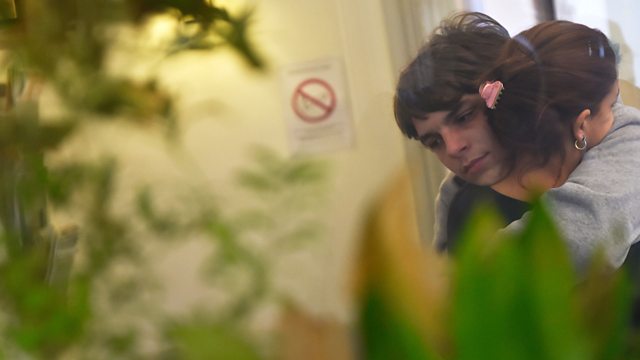People with Autism Die Decades Before General Population
Why people with ASD are dying early; The Hungarian health workers protesting against corrupt doctors; How the threat of losing financial incentives encourages people to exercise
A large study from Sweden has confirmed that people with autism live shorter lives on average than other people; with some of those affected only surviving until the age of 40. The team conducting the research looked at the health records of 27,000 adults with autism and compared them with 2.7 million people in the general population in Sweden. Dr Tatja Hirvikoski, from the Centre for Neurodevelopmental Disorders at the Karolinska Institute, tells Health Check what they discovered.
Hungary health
In Hungary there is a growing shortage of doctors and nurses, as more and more leave the country for jobs in northern Europe where they can earn up to six times as much. Currently the healthcare system is in need of around 20,000 more nurses and in nine years it is predicted that half of the country will not have a proper GP system. But it is not just higher salaries elsewhere that is causing the exodus. Another reason is because of what some regard as a moral crisis in Hungarian health care. Many doctors feel humiliated by the widespread practice of ‘gratitude payments’; the semi-illegal envelope cash that some doctors expect from their patients after, or sometimes before they receive treatment. These payments are used to supplement low wages. The �鶹��’s Budapest correspondent Nick Thorpe has been investigating.
Cash for exercise
If you have ever tried sticking to a new exercise regime, you will know that it is easy to start with good intentions, but harder to keep going week in week out. But what if you were paid each time you did it, or alternatively promised a sum of money and then fined if you did not manage to complete your goal that day? Which is more likely to work better? A team at the University of Pennsylvania in the US has just put this to the test. Dr Mitesh Patel, assistant professor of medicine and healthcare management at the Perelman School of Medicine, tells Claudia what was involved with the experiment.
(Photo: An autistic teenager hugs his mother. Credit: Loic Venance/AFP/Getty Images)
Last on
Broadcasts
- Wed 23 Mar 2016 20:32GMT�鶹�� World Service Online, Americas and the Caribbean, Europe and the Middle East & UK DAB/Freeview only
- Wed 23 Mar 2016 21:32GMT�鶹�� World Service Australasia, East Asia, South Asia & West and Central Africa only
- Thu 24 Mar 2016 02:32GMT�鶹�� World Service Americas and the Caribbean
- Thu 24 Mar 2016 03:32GMT�鶹�� World Service Online, East Asia, Europe and the Middle East & UK DAB/Freeview only
- Thu 24 Mar 2016 04:32GMT�鶹�� World Service South Asia
- Thu 24 Mar 2016 05:32GMT�鶹�� World Service Australasia
- Thu 24 Mar 2016 07:32GMT�鶹�� World Service Europe and the Middle East & East and Southern Africa only
- Thu 24 Mar 2016 14:32GMT�鶹�� World Service East Asia, East and Southern Africa, West and Central Africa & South Asia only
- Sun 27 Mar 2016 19:32GMT�鶹�� World Service East and Southern Africa
Podcast
-
![]()
Health Check
Health issues and medical breakthroughs from around the world.


